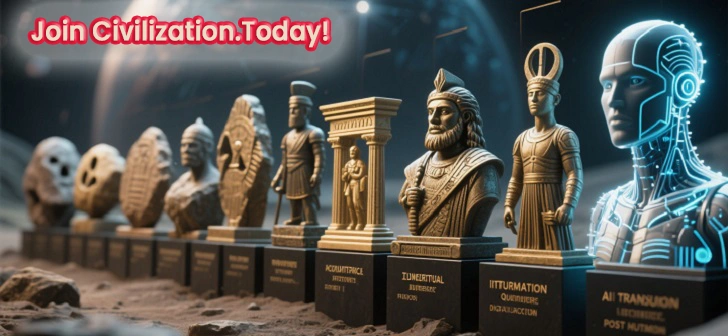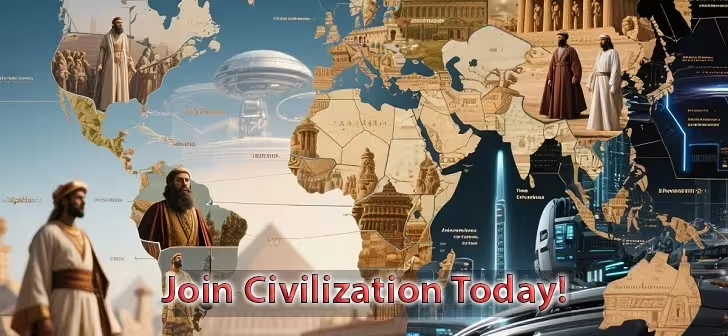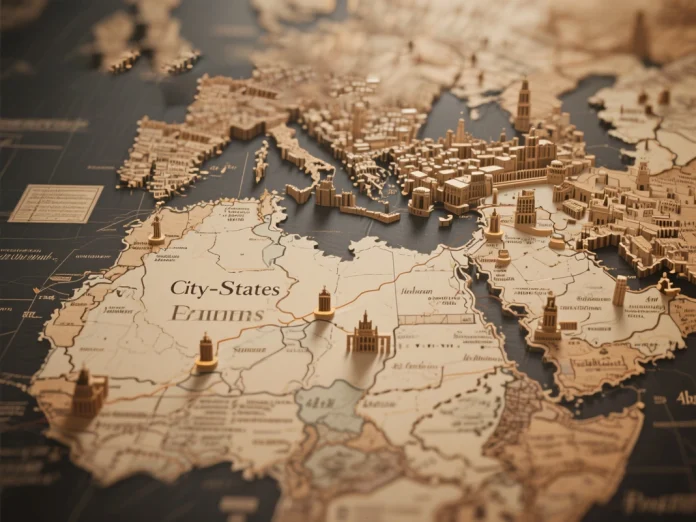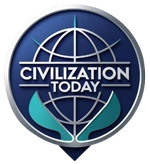Human civilization has always been defined by how societies organize power, create rules, and establish authority. From the bustling city-states of Mesopotamia and Greece to the powerful nation-states of the modern era, the story of political evolution reveals not only the structure of governance but also the ambitions, struggles, and visions that have shaped history. Understanding this journey helps us see how our current world order emerged and why it continues to change.
The Birth of Political Communities: City-States
The earliest form of organized governance emerged in city-states. These were small, independent political units, usually consisting of a central city and its surrounding territory. Famous examples include Uruk in Mesopotamia and Athens in Greece.
City-states were unique because they combined religion, economy, and politics under one local authority. In Mesopotamia, kings often claimed divine authority, while in Athens, experiments with democracy gave citizens a role in shaping political life.
Despite their influence, city-states had limitations. Their small size made them vulnerable to external threats, and internal rivalries often led to conflict. Yet, city-states were crucial stepping stones in political evolution, setting the stage for larger political entities.
The Rise of Kingdoms and Empires
As populations grew and trade expanded, city-states evolved into kingdoms and empires. Centralized monarchies provided stability by uniting diverse peoples under one ruler. The Egyptian Pharaohs exemplified divine kingship, ruling vast lands with the support of religion, bureaucracy, and military power.
Later, empires like the Roman Empire demonstrated how political organization could expand across continents. Rome introduced advanced legal systems, citizenship concepts, and infrastructure that connected distant regions. However, the larger the empire, the harder it became to maintain control. Revolts, invasions, and economic strain often led to decline.
These experiences in centralized rule highlighted both the potential and challenges of large-scale governance, fueling the next stage of political evolution.
The Medieval Transition: Feudalism and Fragmentation
After the fall of Rome, Europe entered a fragmented political era known as feudalism. Power was decentralized, divided among kings, nobles, and local lords. This system reflected instability but also offered protection in a violent age.
During this period, the Catholic Church became a major political player, influencing laws, education, and even monarchs. Political authority was no longer based solely on military strength but also on religious legitimacy.
While feudalism may appear chaotic compared to centralized empires, it introduced new ideas about loyalty, hierarchy, and governance, contributing to the broader arc of political evolution.
The Birth of Nation-States
The nation-state—the dominant political unit today—emerged in Europe during the late Middle Ages and the Renaissance. Unlike city-states or empires, nation-states were built on shared culture, language, and identity.
The Treaty of Westphalia (1648) is often cited as a turning point. It established the principle of state sovereignty, where each nation controlled its territory without outside interference. Countries like France, England, and Spain became early examples of centralized nation-states with strong monarchies.
This transformation marked a significant stage in political evolution: the shift from local or religious authority to the modern idea of political borders and national identity.
Modern Nation-States and Globalization
The 19th and 20th centuries saw nation-states strengthen through industrialization, colonial expansion, and revolutions. Ideas of democracy, nationalism, and self-determination reshaped political landscapes. Colonies demanded independence, and new nations emerged across Africa, Asia, and Latin America.
Today, nation-states dominate global politics, but globalization challenges their sovereignty. Supranational organizations like the United Nations and the European Union demonstrate that cooperation across borders is often necessary to tackle global issues such as climate change, trade, and security.
This raises the question: are we witnessing yet another stage in political evolution, moving beyond nation-states toward global governance?
The Future of Political Evolution
The story of political organization is far from over. With the rise of digital communication, artificial intelligence, and global networks, traditional ideas of state power may shift dramatically. Some scholars argue that cities may regain importance as hubs of governance, while others see multinational corporations and global institutions playing a larger political role.
Just as city-states gave way to nation-states, our current system may evolve into something entirely new. The only constant in political history is change.
Conclusion
From the sacred authority of city-state rulers to the sovereignty of modern nation-states, political evolution reflects humanity’s ongoing struggle to balance power, identity, and cooperation. Each stage has built upon the last, shaping the world we live in today.
As we face unprecedented global challenges, understanding the long arc of political evolution is more important than ever. It reminds us that political systems are not fixed but adaptable—and that the next great transformation may already be on the horizon.




